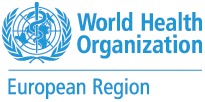
New WHO data shows how COVID pandemic affected children’s health and habits in Europe & Central Asia
Copenhagen, 19 May 2023
The COVID-19 pandemic with its lockdowns and emergency policies has changed our diets, physical activity patterns, screen time and many other daily habits tightly connected to health. Data conveyed through a new WHO/Europe factsheet demonstrates both positive and negative effects of the pandemic in 13 of the 53 countries of the WHO European Region – with a special focus on school-aged children.
Fact one: increased frequency of home cooking
Approximately 30% of families began to cook more homemade meals during the pandemic, enabling them to have greater control over ingredients.
Home-cooked food usually contains less trans fats, sugars and salt compared to “ready-to-eat” supermarket food or meals ordered from delivery services. So, cooking at home is usually a great way to reduce risk of noncommunicable diseases (NCDs) linked to nutrition, such as cardiovascular diseases, diabetes, and certain types of cancer.
Fact two: increased consumption of sweets
1 in 5 parents reported that their children began consuming more sweets during the pandemic, such as candies, cakes, ice cream, and pastries.
Increased sugar intake is linked with an increased risk of obesity – a condition that has reached epidemic proportions in the WHO European Region. Today, 1 in 3 children in the Region lives with overweight and obesity, which puts them at risk of developing NCDs later in life.
Fact three: decreased levels of active play for children
The restrictions imposed during the COVID-19 pandemic greatly reduced opportunities for children to engage in physical activity and outdoor play. 30% of children in the Region became less physically active during this period, missing out on the health benefits of activities such as cycling, playing soccer, or running in the park.
Fact four: screen time levels increased
In addition, during the lockdown period, around 35% of children spent more time watching television, playing video games, or using social media, increasing the time they spent on sedentary habits, increasing their risk of becoming overweight and obese, and increasing their exposure to marketing of unhealthy products via digital media.
The factsheet also shows the negative impact that COVID-19 has had on the psychosocial well-being of children, which has the potential to further impact children’s lifestyle and behaviours.
“The lessons we’ve learned from the COVID-19 pandemic underscore the importance of implementing effective policies to improve food environments, encourage physical activity, and protect the health and well-being of families. By capitalizing on these lessons, we can strive to create a healthier future for children and young persons – indeed for all of us – as we emerge from the pandemic. This is particularly important for protecting the health of groups from lower socioeconomic groups, who were hit hardest by the negative effects of the pandemic,” said Dr Kremlin Wickramasinghe, WHO/Europe Regional Adviser on Nutrition, Physical Activity and Obesity.
“Policy considerations to mitigate the negative impacts that COVID-19 had on the psychosocial well-being of children include delivery of universal mental health promotion and prevention activities for school-aged children, expanding access to family and parenting support initiatives, and identifying opportunities for provision of accessible psychosocial support within community and primary health care settings,” said Dr Ledia Lazeri, WHO/Europe Regional Adviser for Mental Health.
LEARN MORE
Partcipating countries: Azerbaijan, Croatia, Georgia, Italy, Kazakhstan, Malta, Montenegro, Poland, Portugal, Romania, San Marino, Slovakia, and Uzbekistan
To get the full version of the factsheet, click HERE.
To arrange an interview with WHO experts about the factsheet’s findings or for any further inquiries, please contact:
Igor Kryuchkov
Communications
WHO European Office for Prevention and Control of Noncommunicable Diseases (NCD Office)
WhatsApp +7 916 104 8063 / Tel. +995 598 21 79 11
This information was brought to you by Cision http://news.cision.com
If you would rather not receive future communications from WHO Regional Office for Europe, please go to https://optout.ne.cision.com/en/fQCv9NxY3i7vLxqreB5U1wa4HFMLRNPkENkr8qTfjo3tB2VTJ2WmDusepVCpaLzwVyvgrR7c6xFPZQBrRfrgNMS8zz6SkeKZvjfvGRs5EsAwavExf4ak7BwcR9KGJSt4npF.
WHO Regional Office for Europe, Marmorvej 51, Copenhagen, 2100 Denmark

